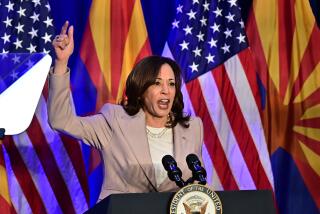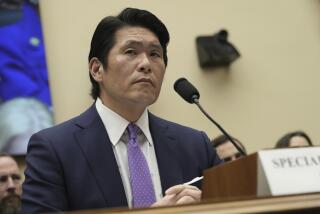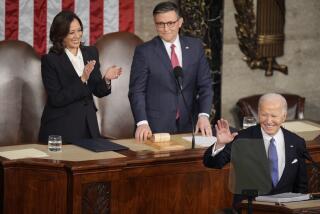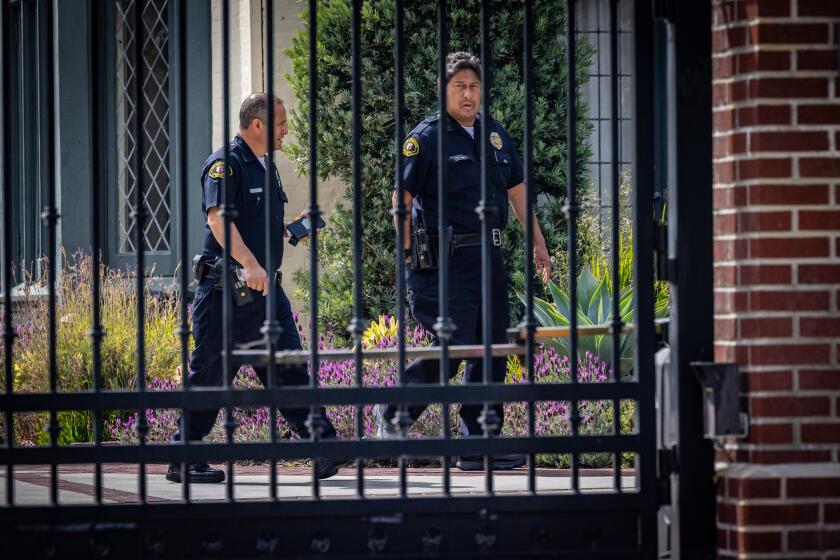New batch of Nixon tapes released
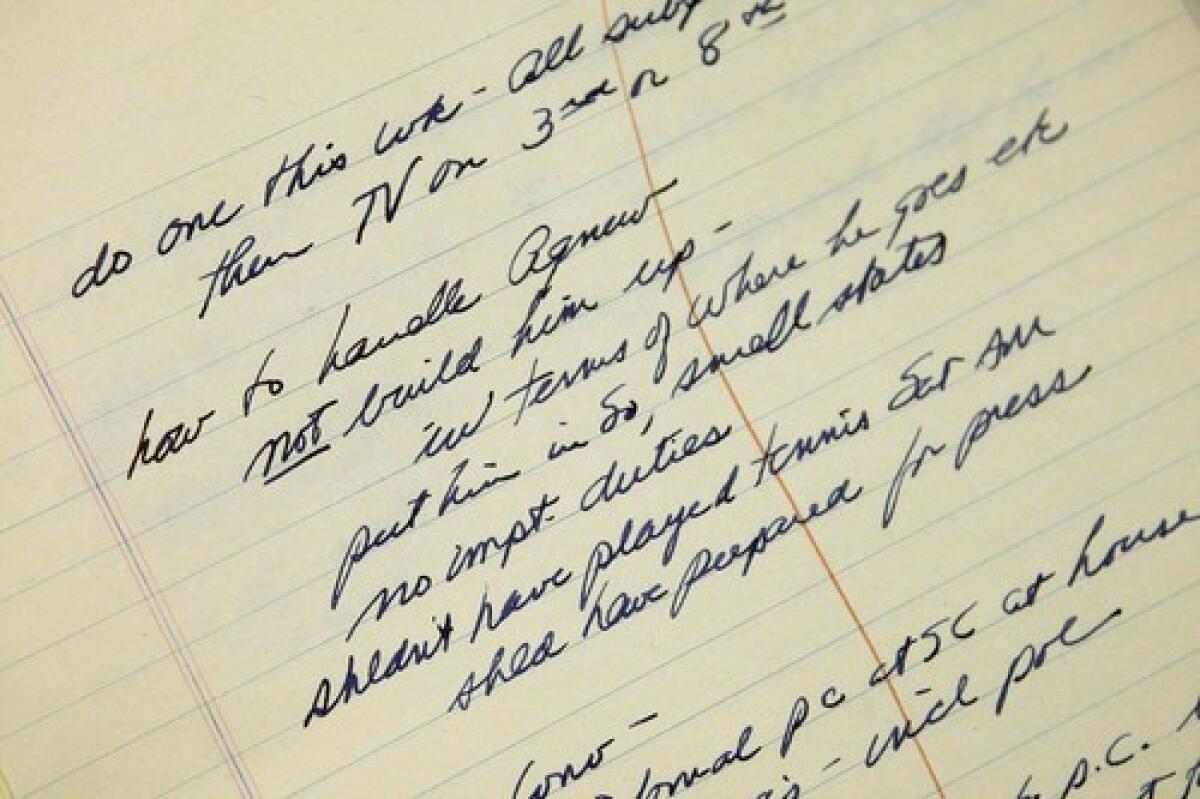
White House tapes released Tuesday capture Richard Nixon as a pugnacious second-term president who talks of hammering out an end to the Vietnam War even if he has to “cut off the head” of the South Vietnamese leader, remarks that an abortion might be necessary if a pregnancy involved an interracial couple and appears preoccupied with savaging his political foes.
As Nixon was negotiating an end to U.S. military involvement in Vietnam in January 1973, he faced a South Vietnamese president who was reluctant to sign a proposed peace treaty that he feared would doom his government to a communist takeover.
Nixon’s response was to threaten President Nguyen Van Thieu with a halt to the U.S. aid on which South Vietnam depended. “Is that going too far?” Nixon asked Secretary of State Henry Kissinger on Jan. 20, 1973. “In other words, I don’t know whether the threat goes too far or not, but I’d do any damn thing, that is, or to cut off his head if necessary.”
The conversation between Nixon and Kissinger is part of 154 hours of Nixon tapes released Tuesday by the Richard Nixon Library and Museum in Yorba Linda, along with thousands of archival documents. Nixon’s voice in the tapes is often a mumble, punctuated by deep sighs and audible bursts of profanity.
The tapes reflect secretly recorded conversations between Nixon and his associates during January and February 1973. Among the things on his mind during that period were the Vietnam War, how to savage his political enemies and the unfolding Watergate drama.
The tapes also caught his reaction to Roe vs. Wade, the Supreme Court decision that legalized abortion. In a Jan. 22 conversation with aide Chuck Colson, Nixon can be heard saying: “There are times when abortions are necessary -- I know that. . . . Suppose you have a black and a white, or a rape.”
Nixon and Colson agreed that legalized abortion encouraged permissiveness.
“It breaks the family,” Nixon says.
The recordings made public Tuesday represent the third release of Nixon tapes since the National Archives assumed control of the Nixon Library two years ago, and the 13th release of tapes since 1980. The public now has access to 2,371 hours of tapes from the Nixon White House, with an additional 700 hours to be released in coming years.
Kenneth Hughes, a Nixon expert with the presidential recordings program at the nonpartisan Miller Center of Public Affairs, said the new tapes showed the depth of Nixon’s zeal to impose a peace deal on Thieu, even though it left about 140,000 North Vietnamese troops occupying South Vietnam and Nixon knew that it would lead to an eventual communist victory.
Nixon had promised “peace with honor” and pledged to withdraw American forces only when South Vietnam could defend itself. But if Nixon couldn’t persuade Thieu to agree to his peace agreement, Hughes said, the American president would have had difficulty justifying his continuation of the war during his first four-year term, during which 20,000 American troops died.
“For domestic political reasons, Nixon needed to conceal the failure of his strategy of Vietnamization and negotiation,” Hughes said. “If people realized that he had added 20,000 additional American casualties to the war, and the communists were going to win anyway, then it would have proved his critics right that he should have ended the war at the start of his (first) term.”
Elsewhere on the tapes, Nixon can be heard saying he would push through with the peace deal whether Thieu consented or not.
In a conversation with Colson on Jan. 20, 1973, Nixon characterized criticism of his recent bombing of Hanoi as media-fueled hysteria, and said the remarks of his opponents were “treasonable.”
With a cease-fire looming, Nixon was ready to portray himself as a peacemaker, and instructed Colson to blast critics as soon as the deal was finalized.
“Your job is to see that, by God, we put it to ‘em,” Nixon tells Colson.
In the same conversation, Nixon compares his bombing of Vietnam with that of American commanders in other wars. “Good God, when you think of what basically Eisenhower did in World War II -- I mean, he decimated cities. . . . Not because he wanted to kill people, because he wanted to end the war. Why did Truman drop the atomic bomb? Not because he wanted to demolish cities, because he wanted to end the war. Why did Eisenhower bomb the . . . out of the cities of North Korea? That’s what ended the war, you know.”
Discussing Nixon’s political opposition, Colson says it included “the blacks and the poor.” Nixon adds: “And the intellectuals.” Colson goes on to say that it also included “the lavender shirt mob . . . the homos and the queers.”
Ten days later, in another conversation with Colson, Nixon expresses his blanket scorn for the media establishment and “intellectual snobs.” He reiterates his administration’s policy of both shunning and attacking the nation’s major newspapers, including the New York Times, and spoke of his frustration with Kissinger’s courting of the press.
“What’s the fascination Henry’s got with that crowd?” Nixon asks. “He just can’t stand being away from them.”
Even as Nixon was contending with decisions of historic consequence in early 1973, the tapes reveal he remained alert for ways to shore up the Republican Party. On Feb. 23, 1973, he placed a call to future President George H.W. Bush, then the Republican National Committee chairman.
The call was “nothing of great importance,” Nixon says, but he wanted to inform Bush of what he witnessed during his recent visit to the South Carolina state Legislature.
“I noticed a couple of very attractive women, both of them Republicans, in the Legislature,” Nixon tells Bush. “I want you to be sure to emphasize to our people, God, let’s look for some. . . . Understand, I don’t do it because I’m for women, but I’m doing it because I think maybe a woman might win someplace where a man might not. . . . So have you got that in mind?”
“I’ll certainly keep it in mind,” Bush replies.
“Boy, they were good lookin’ and bright,” Nixon continues. And he had been informed, further, that “they’re two of the best members of the House.”
“Well, that’s terrific,” Bush says.
christopher.goffard
@latimes.com
More to Read
Start your day right
Sign up for Essential California for news, features and recommendations from the L.A. Times and beyond in your inbox six days a week.
You may occasionally receive promotional content from the Los Angeles Times.
